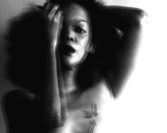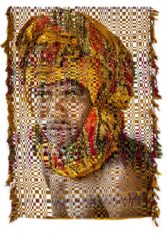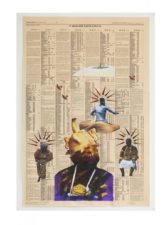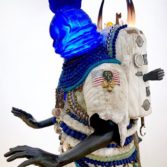
There are many aspects of Messouma Manlanbien’s work that attracted me and that I enjoyed when visiting the exhibition; probably the most obvious one is the focus on women as the central theme not only in the exhibition but in Marie-Claire’s work in general, and the prevailing stereotypes that many of us battle against on a daily basis, the acknowledgement and celebration of our foremothers teachings also moved me. I appreciated the artist’s attempt to contribute with her work to these striking debates.





